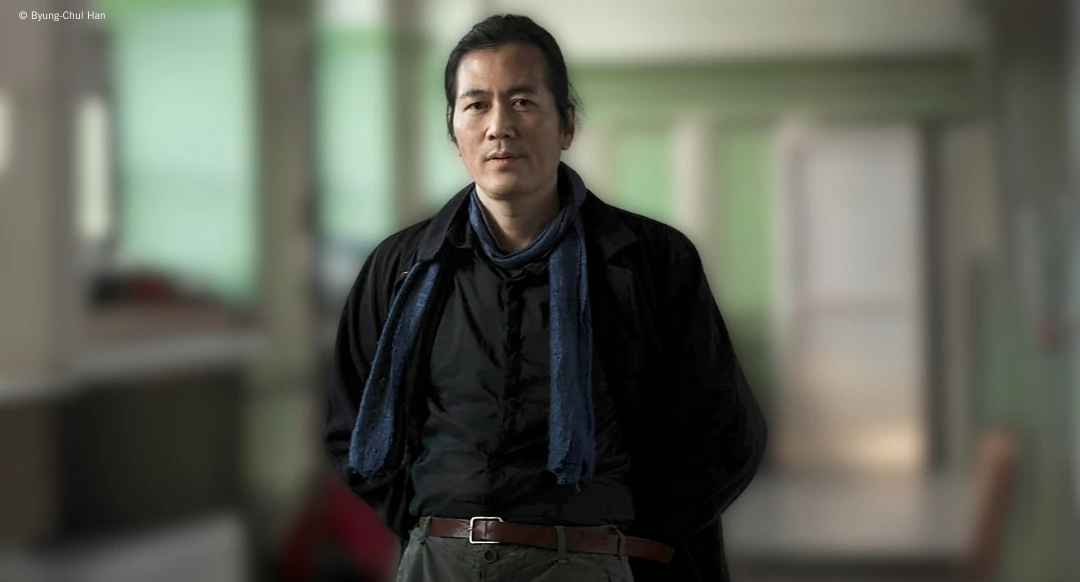Main content
Press releases
Byung-Chul Han, Princess of Asturias Award for Communication and Humanities

Korean-born German philosopher and essayist Byung-Chul Han has been granted the 2025 Princess of Asturias Award for Communication and Humanities, as announced today by the Jury responsible for conferring said Award.
The Jury for the Award –convened by the Princess of Asturias Foundation– was chaired by Miguel Falomir Faus and made up of Irene Cano Piquero, Victoria Cirlot Valenzuela, Estrella de Diego Otero, Taciana Fisac Badell, Santiago González Suárez, Álex Grijelmo García, Alma Guillermoprieto, Miguel Ángel Liso Tejada, Catalina Luca de Tena y García-Conde, Marchioness of Valle de Tena, Cristina de Middel Puch, Miguel Ángel Oliver Fernández, Carmen Riera i Guilera, Diana Sorensen and Óscar Loureda Lamas (as acting secretary).
This candidature was proposed by Antonio Lucas Herrero, news writer and columnist for the daily newspaper El Mundo.
Byung-Chul Han (Seoul, Republic of Korea, 1959) studied German Literature and Theology at the University of Munich, and Philosophy at the University of Freiburg, where he received a PhD in 1994 for his thesis on Martin Heidegger. He has taught at the University of Basel (Switzerland, 2000-2012) and has lectured in Philosophy and Cultural Studies at the University of Fine Arts in Berlin, after having worked at the Karlsruhe University of Arts and Design, alongside Peter Sloterdijk.
Considered one of the most prominent contemporary philosophers, Byung-Chul Han has above all dedicated his thinking to what he calls the “burnout society” (Müdigkeitsgesellschaft) and the “transparency society” (Transparenzgesellschaft), as well as to the concept of shanzhai, a neologism with which he identifies the modes of deconstruction in the contemporary practices of Chinese capitalism. Highly critical of neoliberalism, Han believes we live in an age of neuronal disorders (depression, chronic fatigue syndrome, attention deficit hyperactivity disorder, etc.) caused by an excess of positivity in a society that has abandoned reflection, retreat and meditation, and therefore does not value individuality. He argues that this is a society increasingly dominated by narcissism and suffering from a loss of desire, in which we become progressively incapable of relating to others. He further insists on the need to regain the ability to say no, that not everything is possible, that not everything can be done, that one should not even attempt to do so. In his most recent works, he has broadened his critical approach to contemporary society, incorporating reflections on hope and contemplation. He is considered an outstanding successor to philosophers such as Roland Barthes, Giorgio Agamben and Peter Sloterdijk. Translated into several languages (Spanish, Danish, Italian, Korean, Swedish, French, Romanian and Russian, among others), some of his notable books are Was ist Macht? (2005) (What is Power? 2018), Duft der Zeit: Ein philosophischer Essay zur Kunst des Verweilens (2009) (The Scent of Time: A Philosophical Essay on the Art of Lingering 2017), Müdigkeitsgesellschaft (2010) (The Burnout Society (2015), Topologie der Gewalt (2011) (Topology of Violence, 2018), Transparenzgesellschaft (2012) (The Transparency Society, 2015), Agonie des Eros (2012) (The Agony of Eros, 2017), Im Schwarm (2013) (In the Swarm: Digital Prospects, 2014), Psychopolitik: Neoliberalismus und die neuen Machttechniken (2014) (Psychopolitics. Neoliberalism and New Technologies of Power (2017), Die Austreibung des Anderen (2016) (The Expulsion of the Other: Society, Perception and Communication Today, 2018), Gute Unterhaltung (2017) (Good Entertainment, 2019), Vom Verschwinden der Rituale: Eine Topologie der Gegenwart (2019) (The Disappearance of Rituals: A Topology of the Present (2020), Die Palliativgesellschaft (2021) (The Palliative Society (2021) and Undinge: Umbrüche der Lebenswelt (2021) (Non-things: Upheaval in the Lifeworld, 2022). In these works, he reflects on the importance of establishing a relationship that could be called affective with certain material elements in an increasingly digitalized society. A prolific author, his latest published works include Infokratie: Digitalisierung und die Krise der Demokratie (2021) (Infocracy. Digitalization and the Crisis of Democracy, 2022), Vita Contemplativa: Oder von der Untätigkeit (2022) (Vita Contemplativa: In Praise of Inactivity (2024), Die Krise der Narration (2024) (The Crisis of Narration, 2024) and Der Geist der Hoffnung: Wider die Gesellschaft der Angst (The Spirit of Hope, 2024).
He has received awards such as the Prix Bristol des Lumières (France, 2016) and the Salzburg State Prize for Future Research (Austria, 2016) and has featured in the documentary Fatigue Society: Byung-Chul Han in Seoul / Berlin (2015), directed by Isabella Gresser and based on his book The Burnout Society.
As stated in the Statutes of the Foundation, the Princess of Asturias Awards are aimed at rewarding “the scientific, technical, cultural, social and humanitarian work carried out at an international level by individuals, institutions or groups of individuals or institutions”. In keeping with these principles, the Princess of Asturias Award for Communication and Humanities is to be granted to “the work of fostering and advancing the sciences and disciplines considered humanistic activities or any activity related to social communication in any of its forms.”
This year, a total of 47 candidatures comprising 16 different nationalities were put forward for the Communication and Humanities Award.
This is the first of the eight Princess of Asturias Awards to be bestowed in what is now their forty-fifth year. The corresponding Awards for Literature, Social Sciences, the Arts, Sports, Concord, Technical and Scientific Research, and International Cooperation shall be announced in the coming weeks (in the preceding order).
As is customary, the presentation of the Princess of Asturias Awards will take place in October in a solemn ceremony presided over by Their Majesties The King and Queen, accompanied by Their Royal Highnesses Leonor, Princess of Asturias, and Infanta Sofía of Spain.
Each Princess of Asturias Award comprises a Joan Miró sculpture symbolizing the Award, a diploma, an insignia and a cash prize of fifty thousand euros.
End of main content
